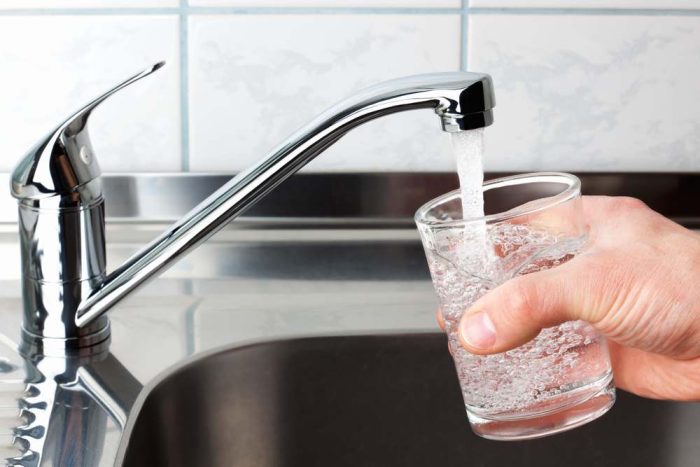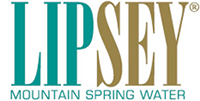
When you think about getting a drink of water, do you turn on the tap or reach for a bottle of water? Sometimes you might be concerned about where you live and the quality of the water available in your area. For residents and visitors alike, you might be wondering, can you drink Atlanta tap water? The short answer is that Atlanta, Georgia, tap water is generally considered safe to drink, though it helps to have a greater understanding of its water sources and purification processes to make an informed decision. Lipsey Water offers home and office delivery of fresh mountain spring water as an alternative to turning on the tap in your Atlanta home. Here’s what you need to know about Atlanta tap water and how to decide what water source you prefer for your drinking and cooking needs.
Where Does Atlanta Get Its Drinking Water?
The city of Atlanta, Georgia, gets its water from a variety of sources, including both surface water and groundwater. The main source of water for the city of Atlanta is the Chattahoochee River, which is about 430 miles long and flows through north Georgia and along the Alabama and Georgia border. In Atlanta, the city operates two water treatment plants located on the water. These water treatment plants treat and purify the water from the Chattahoochee River to ensure that it meets all state and federal water quality and safety standards. The Chattahoochee River provides both surface water and groundwater to supply drinking water. The city of Atlanta also gets a portion of its water through the use of wells that pump water from underground aquifers. Once the water gets treated and purified, the city then distributes the water to its residents and businesses.
Are There Contaminants in Atlanta’s Tap Water?
Tap water in Atlanta, Georgia, is generally considered safe to drink. All water supplied by the city of Atlanta regularly undergoes testing and monitoring to ensure it is free from harmful contaminants. Atlanta’s tap water must meet the standards set by the Environmental Protection Agency and the Georgia Environmental Protection Division. Atlanta also publishes an annual water quality report to provide its residents and businesses with detailed information about the quality of the tap water, including the results of testing and monitoring. It is important to note that individual homes and buildings may have plumbing systems that can negatively affect the quality of the water. Microplastics can be found in tap water and various sources of drinking water around the world, including Atlanta, Georgia. The breakdown of larger plastic items can result in microplastics that contain harmful chemicals and pollutants. Studies examining the potential health effects of ingesting microplastics are ongoing, and water treatment centers across the country do not typically target microplastics.
Is It Better to Drink Bottled Water in Atlanta?
The issue of microplastics and other potential contaminants in drinking water is a global concern. Studies have suggested that microplastic could potentially carry health risks and negatively impact the environment. If you are concerned about microplastics and other contaminants in your water, you may want to consider switching to bottled water that comes from a trusted source. Spring water is typically considered a high-quality source of water for both drinking and cooking compared to tap water. Spring water comes from a natural source underground and is not exposed to surface contaminants like pollution or industrial runoff.
Benefits of Bottled Water
Some potential benefits of bottled water include the following.
Pure Taste
Spring water is considered to be free of impurities, such as chlorine and fluoride, which can be found in tap water. Many people report that spring water offers a fresh, pure taste, while tap water may have an unpleasant aftertaste.
Safe Packaging
Spring water can also come in safe packaging that helps protect the natural mineral content and protect it from impurities like plastics. Glass bottling for spring water does not impact the water’s taste and keeps the water fresh.
Environmentally Friendly
Reusable bottled water sources also offer a more environmentally friendly option for your drinking water. Spring water is a renewable resource because it can be collected and bottled right at the source. Because spring water is bottled at the source, this reduces the environmental impact of transportation.
Convenience
Bottled spring water also offers convenience for both residents and businesses looking for trusted and reliable sources for their drinking water. For example, Lipsey Mountain Spring Water offers home and office delivery options for the city of Atlanta.
Tap Water vs. Spring Water
Spring water from a trusted source means you are drinking water that has been uncontaminated by human and environmental pollutants. However, tap water goes through various treatment processes, and some additives like chlorine may be used as disinfectants for public water systems like in the city of Atlanta. Tap water may contain levels of chlorine, fluoride, lead, and microplastics that can make drinking this type of water uncomfortable for many people. Instead, you may want to choose spring water that is bottled at the source. You may also want to avoid individually bottled water, especially in plastic or metal containers, as these can impact the quality of your drinking water as well.
Conclusion: Can You Drink Atlanta Tap Water
Although Atlanta tap water is generally safe to drink, spring water brings additional flavor and health benefits without the risk of contaminants or impurities. Lipsey Water provides spring water from a trusted source and delivers it to homes and offices in the Atlanta area. Lipsey Mountain Spring Water is sourced in the Blue Ridge Mountains and encased in glass bottles with enhanced purity standards to ensure you have the best drinking water available in your home and office.
